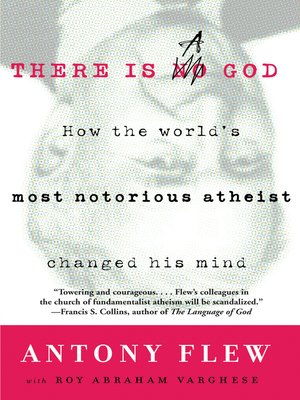

The attempt to redefine atheism so that it refers merely to the absence of belief in God has origins in a 1972 article by Antony Flew entitled “The Presumption of Atheism.” Flew candidly admitted he was using the term atheism in an unusual way - “against established common usage.” 8 Flew did so precisely so that he could defend the contention that “the debate about the existence of God should properly begin from a presumption of atheism” and “that the onus of proof must lie on the theist.” 9 It is, therefore, inaccurate for the AAA to assert the definition it cites is correct and chalk the contrary use up to theistic bias.


The leading critics of theism and defenders of atheism currently define atheism as the belief that there is no God. Nor do any of them come from theists they are the definitions given by today’s most prominent critics of theism. Schellenberg defends a similar definition of atheism “understood as disbelief of traditional theism.” 6 Even the AAA partially concedes when it says, “Older dictionaries define atheism as ‘a belief that there is no God.’” However, the AAA’s statement then dismisses this idea by suggesting “theistic influence taints these definitions.” 7 Yet the above quotes aren’t from outdated dictionaries they are from contemporary publications. Smart concurs: “‘Atheism’ means the negation of theism, the denial of the existence of God.” 4 Paul Draper states that atheism is “best understood in philosophy as the metaphysical claim that God does not exist.” 5 And J.

Philosopher William Rowe states, “To be an atheist in the broad sense is to deny the existence of any sort of divine being.” 2 Similarly, Graham Oppy writes, “Atheism says that there are no gods.” 3 J. First, this definition is contrary to the way the term atheism historically has been used in philosophical discussions about God’s existence. To be clear: Atheism is not a disbelief in gods or a denial of gods it is a lack of belief in gods” (emphasis in original). Atheism is too often defined incorrectly as a belief system. It is simply a rejection of the assertion that there are gods. Is atheism correctly defined as an absence of belief in God? The American Atheists Association (AAA) contends, “Atheism is not an affirmative belief that there is no god nor does it answer any other question about what a person believes. Moreover, the burden of proof is not always on the person who makes a claim.Ītheism Defined. Atheism is not simply the absence of belief it does involve making claims. I think this line of argumentation is faulty. The theist is the one making a claim that God exists, so he does bear such a burden, they say. Atheists argue that because they don’t make any positive claims but rather simply fail to affirm the existence of God, they bear no burden of proof. It’s not uncommon to hear skeptics claim that the burden of proof is on the person making a claim.


 0 kommentar(er)
0 kommentar(er)
